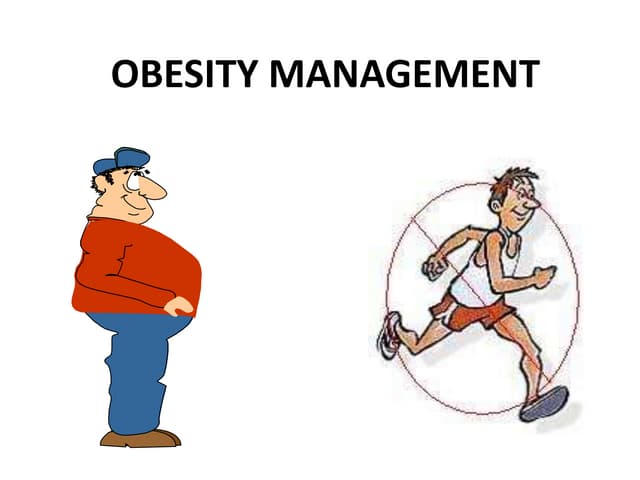Top 5 Health Benefits of a Plant-Based Diet Backed By Science

Who among us does not want to feel energetic, have a well-maintained weight, and a reduced risk for chronic diseases? Well, everyone wants this and to tell you this is not something difficult. In fact, you can do it without using any pills or medications but just by changing what is on your plate.
Today we are going to focus on the plant-based diets. The rising trend of plant-based diet is quite favorable for us as it has the potential to improve our health and let us live well.

You may have already gone through benefits of plant-based diets on social media. Remember that these are not just claims but tremendous scientific research is also behind them.
Plant-based eating has become popular in recent years and now most of the people are already aware that unprocessed whole foods such as fruits, vegetables, legumes, grains, nuts, and seeds hold profound benefits for enhancing our health.

In this article, we will look into 5 top health benefits of a plant-based diet which are backed by science. You will learn how to incorporate plant-based eating in your routine in a balanced way and start your plant-powered journey.
What Is Meant By A Plant-Based Diet?
Simply we know that plant-based eating is that in which we eat most or all of foods that come from the plant sources. These sources can be roughly whole grains, fruits, vegetables, nuts, legumes, and seeds. We take less or no animal products such as dairy, meat, and eggs. Within plant-based foods, also mainly we are relying on whole, minimally processed plant foods rather than highly-processed items.

Top 5 Health Benefits of a Plant-Based Diet Backed By Science
Although they are too much, here we are mentioning just top 5 health benefits of a plant-based diet that are backed by science. This will surely develop your interest in plant-based eating.
- Makes Your Heart Healthy
As a plant-based diet is high in potassium and low in sodium, it may help lower the risk of high blood pressure. While potassium aids in blood pressure regulation, sodium can cause fluid retention and raise blood pressure. When your blood pressure is in control, your heart also stays healthy.

The rich antioxidant and phyto nutrient content of plant-based foods also helps in reducing inflammation and oxidative stress hence preventing any damage to your heart. And how to forget that plant-based foods have low saturated fats and cholesterol while high fiber levels which helps in reducing a major culprit of heart disease which is bad cholesterol, hence putting less strain on the heart and blood vessels and ultimately improving heart health.

According to a study, those who consume more unprocessed plant based diets based on whole grains, nuts, legumes, fruits, and vegetables have lesser rate of heart disease compared to those who took processed plant-based foods.
- Keeps Your Blood Sugar Levels in Control
Plant-based diet gives you less saturated fats and more complex carbohydrates from sources like whole grains which may help lessen the risk of diabetes. Low amounts of saturated fats support in decreasing insulin resistance. Complex carbohydrates and dietary fiber digest more slowly, which slows glucose absorption and helps control blood sugar levels.

According to research, plant-based diets have the potential to significantly decrease the risk of developing type 2 diabetes. Even those having prediabetes or type 2 diabetes also can get benefitted with this approach as plant-based eating improves their insulin sensitivity which then aids in managing blood sugar levels.

Not only this, antioxidants and phytochemicals from plant-based foods are excellent sources to decrease inflammation of your body and prevent damage to insulin-producing cells.
- Manages Your Weight Well
Excessive weight gain can raise the risk of several other diseases such as diabetes and hypertension. Plant-based diets are not only nutritious but provide fewer calories per gram of food and more fiber which can help in preventing overeating and encouraging optimal weight.

So if you are working on losing weight and want to maintain a healthy figure, plant-based diet is a good option.
According to a research study, those following a plant-based diet have less visceral fat and lower body mass index. Another trial found that when overweight individuals had plant-based diet for 16 weeks, it resulted in more weight loss, and also improved insulin resistance compared to the controls.

- Reduces the Risk of Cancers
Plant-based foods can decrease your inflammation levels and improve your cellular health. This can help with decreasing the risk of certain cancers.
The rich antioxidant, vitamin, polyphenol, and mineral content can help in protecting DNA, decreasing oxidative stress, and reducing inflammation. Plant-based diets have the potential to decrease C-reactive protein which is your biomarker of inflammation.

According to studies, vegans and vegetarians have less risk of prostate, colorectal, stomach, and lymphatic cancer.
- Enhances Your Longevity and Mood
As plant-based eating can reduce your risk of several diseases and improves your health, it can lead to better longevity.
According to studies, plant-based diet is linked with decreased all-cause death, particularly deaths from metabolic diseases and heart disease. As most of the diseases have same root cause which is inflammation, oxidative stress, and poor metabolic function, diet which tackle these issues can give broader protection.
Plant-based diets are brimming with essential vitamins, minerals, antioxidants, and phytochemicals required for maintaining good health, strengthening immunity and decreasing disease risk.

By supplying vital nutrients like omega-3 fatty acids from flaxseeds, chia seeds, and walnuts, a plant-based diet can improve your mental health and may help lower the risk of depression. B vitamins, which are necessary for the creation of neurotransmitters that control mood, are also abundant in plant-based diets.

Some Points to Keep In Mind While Following Plant-Based Diet
Keep some guidelines in mind while following a plant-based diet to get maximum benefits.
- Choose whole unprocessed or minimally processed plant foods rather than processed junk plant items.
- Make sure to get enough calcium, vitamin B12, vitamin D, Iron, and omega-3 fatty acid in your diet. Some people following a strict plant diet can fall short on these nutrients although there are plant sources of them.
- You can still benefit from plant-based diets if you do it frequently rather than strictly. You can simply include one plant meal daily or have few days of the week as plant days.
- Remember to consult your doctor before making any significant changes in your diet and lifestyle.
FAQs
Can I still lose weight on a plant-based diet if I don’t do calorie restriction?
Yes, you can still do it. The high fiber and water content of whole plant foods can improve your satiety preventing overeating. You will naturally eat less but don’t feel deprived. However, still controlling portion and going for the right choices of whole foods matter.
Do plant-based diet gives me enough protein?
Yes, indeed they do. Legumes, soy products, whole grains, beans, nuts and seeds give good amount of protein. Have a variety of all these in balanced amounts and you are good to go.
Is vegan and plant-based diet the same?
No, it is not necessary. In vegan, you exclude all animal foods. While in plant-based diet, although your focus is on plant food sources but you can still go for small amounts of eggs, dairy and occasionally meat. The more you eat whole plant-based foods, the more you get the benefits.
Which nutrients need special attention while following a plant-based diet?
Vitamin B12 is mostly in animal sources so on a plant-based diet, you will need its supplements or fortified foods.
Spinach and legumes can give non-heme iron which is not easily absorbed by your body so taking it with some vitamin C source can help.
What are some risks or downsides linked with plant-based diets?
If you don’t plan it well, you can have nutrient deficiencies. You can have inadequate calorie intake if you are very active and have high energy demand.
When shifting to this diet, you can have gas issues because of increased fiber intake.
Key Takeaways
- Plant-based diet can help with improving your heart health, managing your weight and blood sugar levels, and reducing the risk of certain cancers.
- It enhances your physical and mental health and decreases the disease risk which let you live long.
- Plan plant-based diet well, have patience while shifting to it, and do it under supervision to get the best results.
Conclusion
A plant-based diet based on whole minimally processed foods can enhance your health. From being heart friendly, to blood glucose manager, and cancer fighter to weight manager, plant-based eating is good for you health in several ways.
Start slowly like having more veggies in diet, choosing whole grains or having nuts and seeds as snacks. Do proper well-balanced planning, keep steadfast and you will see big health benefits.
To help you make easy plant-based swaps, you can read our article on ’10 easy plant-based swaps that will transform your health’.
References
Satija A, Bhupathiraju SN, Spiegelman D, Chiuve SE, Manson JE, Willett W, Rexrode KM, Rimm EB, Hu FB. Healthful and Unhealthful Plant-Based Diets and the Risk of Coronary Heart Disease in U.S. Adults. J Am Coll Cardiol. 2017 Jul 25;70(4):411-422. doi: 10.1016/j.jacc.2017.05.047. PMID: 28728684; PMCID: PMC5555375.
McMacken M, Shah S. A plant-based diet for the prevention and treatment of type 2 diabetes. J Geriatr Cardiol. 2017 May;14(5):342-354. doi: 10.11909/j.issn.1671-5411.2017.05.009. PMID: 28630614; PMCID: PMC5466941.







